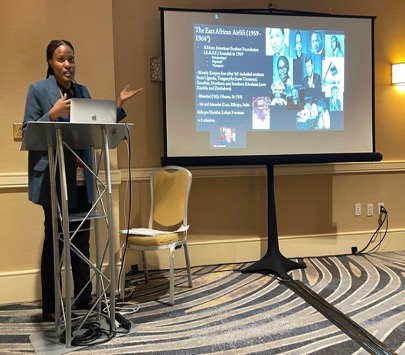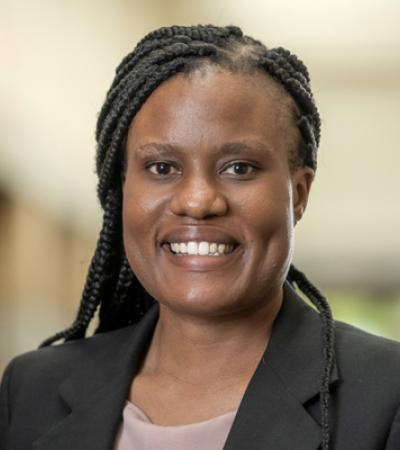African Studies Association Annual Meeting (ASA); Philadelphia, Pennsylvania
Kellogg Institute Conference Travel Grants
Presentation: “In Search of Mboya: Understanding Ethnicity and Democracy Under Moi Through Oral Histories of the East African Airlift, 1959-1963”
Conference: African Studies Association Annual Meeting (ASA),Philadelphia, Pennsylvania
November 17 – November 19, 2022
Report:
 The 65th Annual Conference of the African Studies Association (ASA) was held in Philadelphia, PA between November 17th to the 19th, 2022. The theme for this year’s conference was “African Urbanities: Mobility, Creativity, and Challenges”. With support of the Kellogg Institute for International Studies, I was able to attend and present at this year’s conference, which was the first in-person conference held by ASA since the onset of the pandemic.
The 65th Annual Conference of the African Studies Association (ASA) was held in Philadelphia, PA between November 17th to the 19th, 2022. The theme for this year’s conference was “African Urbanities: Mobility, Creativity, and Challenges”. With support of the Kellogg Institute for International Studies, I was able to attend and present at this year’s conference, which was the first in-person conference held by ASA since the onset of the pandemic.
I served as a panelist in a session entitled “Kenya in the Age of Moi”, which featured four papers which focused on different topical areas during the regime of President Daniel arap Moi (1978 – 2002), a period where Kenya would experience profound political and economic transformation (see Figure 1). My co-panelists included Prof. Muey Saeteurn (University of California, Merced), Prof. Kara Moskowitz (University of Missouri-St. Louis) and Prof. Pamela Wadende (Kisii University). The panel was moderated by Prof. Paul Ocobock (University of Notre Dame) while Prof. Saeteurn and Prof. Moskowitz served as co-chairs. Prof. Moskowitz presented on the rise and fall of Uchumi Supermarkets as means to track how neoliberal policies catalyzed major shifts in Kenya’s economy; Prof. Saeteurn focused on Kenya’s tea drinking culture and the cultivation of a domestic tea market that was crucial for the survival of both state and multinational tea firms; and Prof. Wadende tracked the evolution of Kenya’s educational system with particular attention to the 8-4-4 system adopted in the 1980s.
My paper, entitled “In Search of Mboya: Understanding Ethnicity and Democracy under Moi through Oral Histories of the East African Airlift, 1959 – 1964”, relied on research conducted over the Summer of 2022 in Kenya with support from Kellogg Institute, Kroc Institute for International Peace Studies and the Pamoja Africa Initiative at Notre Dame. The paper assessed the impact of the East African Airlift, an education scheme founded by Kenyan nationalist and trade unionist, Tom Mboya. As independence approached, the scheme was established in 1959 to educate a cadre of technocrats in North America and who would return to Africanize the Kenyan civil service. In particular, I argued that the Airlift demonstrates Mboya’s ideology of an inclusive democracy in Kenya, which became an antithesis to the entrenchment of ethnic clientelism under Moi. Relying on oral histories of members of the Airlift, archival material and other secondary sources, I presented on the experiences of the Airlift generation during the Moi era. The session was enjoyable and I was able to receive feedback on my paper including assessing the shifting identities of the Airlifters, their class formation, demographic shifts in Kenya during the colonial and post-colonial period and other suggested sources of archival material that could be useful for research.
Overall, I was able to achieve three key goals: first, I built experience in not only presenting my research to external audiences and scholars but also received feedback on paper towards eventual submission of my paper to a historical journal in my field. Second, I attended various sessions focused on African history, Peace Studies, gender studies, the African diaspora and upcoming methodologies in the social sciences. These sessions were not only informative but were instructive for my own research in terms of methodologies and future directions I may take. Lastly, I was able to network and meet other scholars in African studies based in the United States, Africa and other parts of the world. These networking opportunities allowed for building of linkages with faculty, administrators and other students who have research topics that overlapped with my own. As such, I was able to set a foundation for possible future collaborations in my research.






